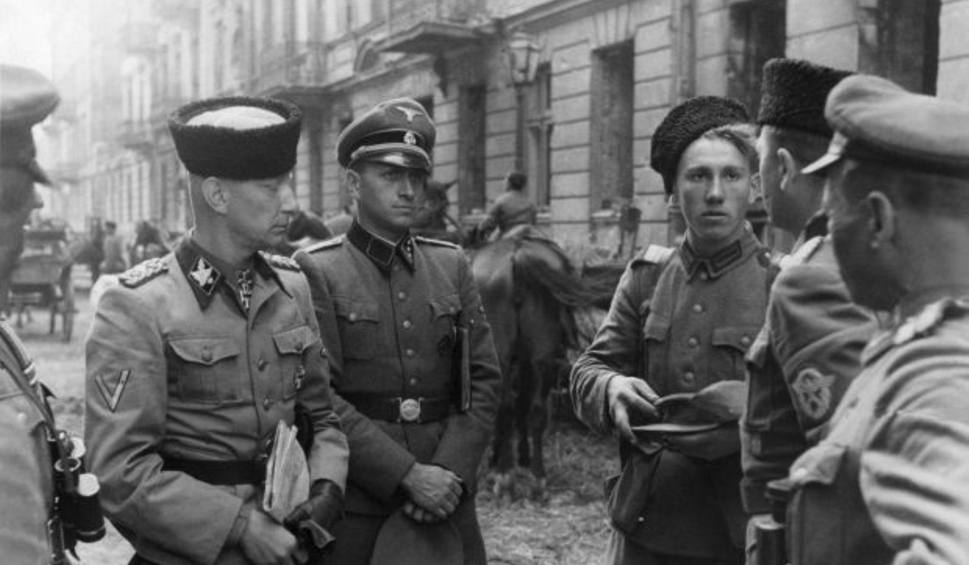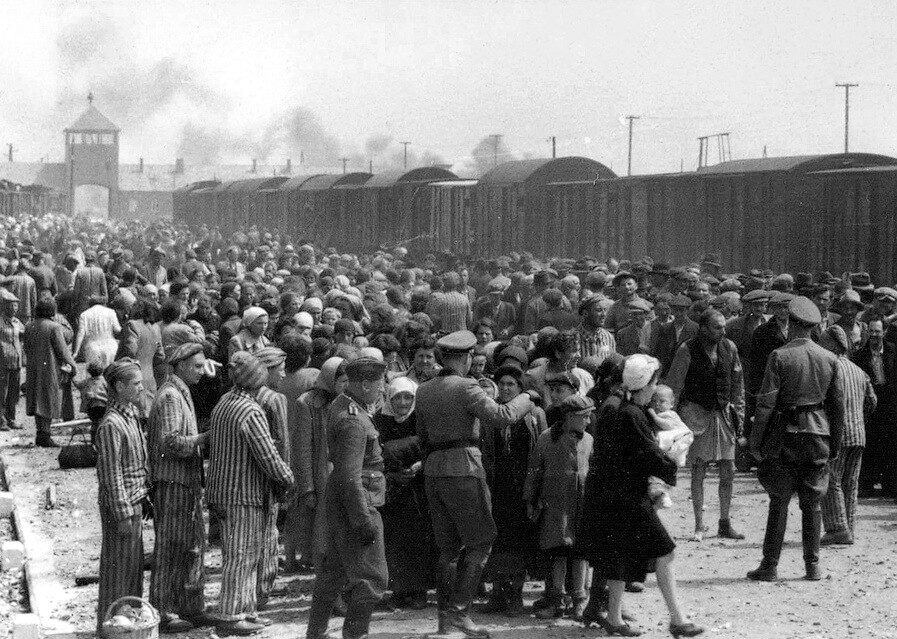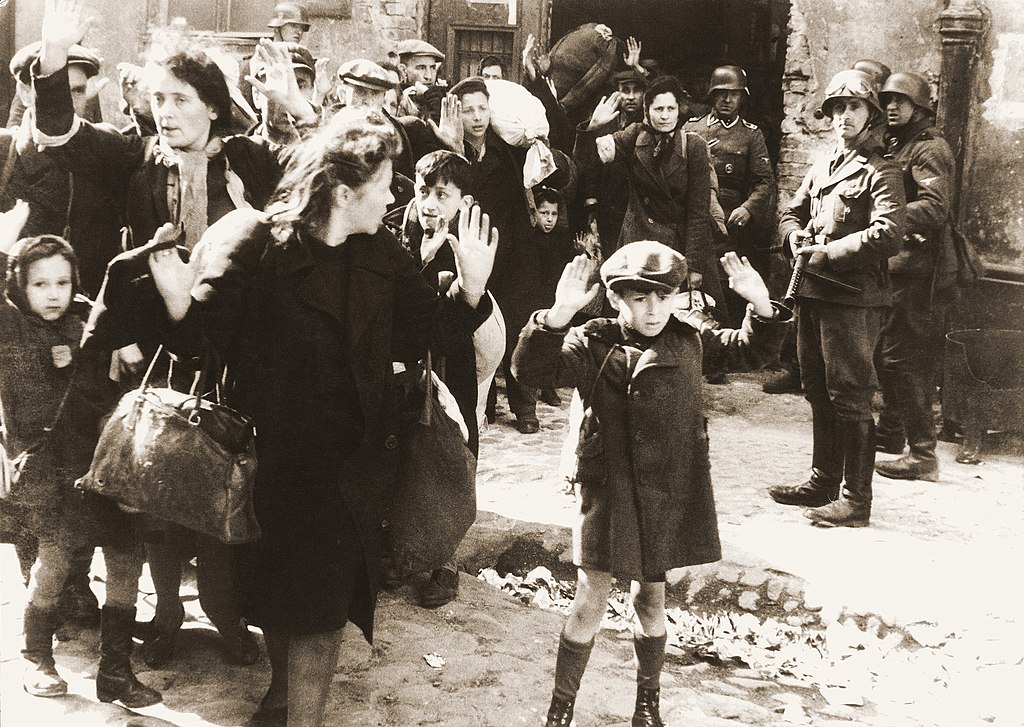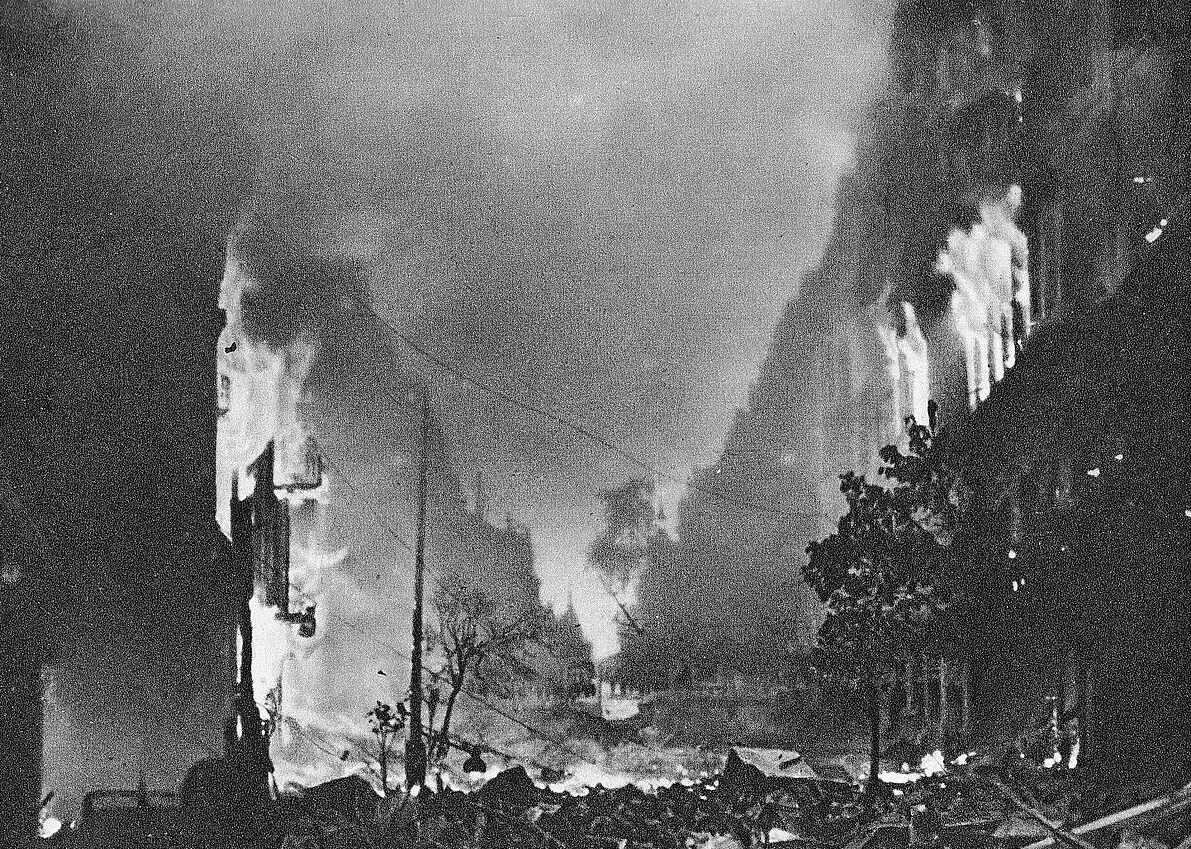Criminals under protection: the myth of Germany’s settling accounts with its history

German politicians are lamenting in their speeches that the German state has supposedly failed in trying Nazis for their crimes. The problem is that this was never the goal of German governments. On the contrary: the goal was to protect German criminals from liability while maintaining the appearance of the rule of law.
Prof. Bogdan Musiał
German political and intellectual elites see themselves as world champions in “settling their own past.” Interestingly, one of the main elements of Germany’s historical policy today has become pride in “overcoming the Nazi past” (guilt has become a virtue!). In the view of German elites, some nations, especially their eastern neighbors, should similarly settle accounts with their own past.
Condemnation of “Nazism” became a central pillar of German historical policy as early as the 1960s, and has played an important role in the country’s foreign policy for decades. The problem is that this only applies to gestures, declarations, appeals, public speeches, that is, only the symbolic and verbal sphere. Moreover, this form of reckoning with the Nazi past is full of misrepresentations and distortions. For example, in Germany, May 8th, 1945 has for years now been celebrated as the day of “Germany’s liberation from Nazi tyranny.”
Empty slogans
To make matters worse, when it comes to actually reckoning with the crimes of Nazism, it has not happened to this day. I am not referring to empty words and slogans, but to a legal reckoning, that is, the trial of the criminals, the rehabilitation of their victims, and material reparations. German politicians are lamenting in their speeches that the German state has supposedly failed in trying Nazis for their crimes. The problem is that this was never the goal of German governments. On the contrary: the goal was to protect German criminals from liability while maintaining the appearance of the rule of law. And the Federal Republic of Germany has succeeded tremendously in doing that.
Even the German constitution (Grundgesetz – Basic Law) of 1949 still contains articles to this day that were intended to protect German criminals from prosecution. The hard facts confirm this. The same was and is true of Germany’s material accountability to its victims, but that’s a separate topic.
About 10,000 German men and women served in the German Auschwitz death camp from June 1940 to January 1945. Not all of them were Nazis, i.e., members of the NSDAP, but all were responsible for the murder of some 1.1 million children, women and men, including about one million Jews, 70,000 Poles, about 20,000 Sinti and Roma, and others. Auschwitz was the largest German extermination camp. The vast majority of German crew members survived the war (serving in Auschwitz was somehow not particularly dangerous) and ended up in West Germany. Of this group, 43 people were brought before West German courts, of whom nine were sentenced to life imprisonment, some received lesser prison terms, and some were acquitted. In all, just over 30 people were convicted. Death sentences were not handed down – this, after all, was what the founding fathers of West Germany sought.

The number of convicted members of the crews of the other death camps is even smaller. This was no accident or ineptitude on the part of German law enforcement agencies.
Protecting German criminals
One of the Allies’ goals was to prosecute and punish those guilty of German crimes in the countries they occupied. Immediately after the occupation of the Third Reich, the prosecuting authorities of Britain, the US, France and the Soviet Union began tracking down German perpetrators, functionaries, party and state activists, members of the SS and police, and occupation institutions and offices. If this involved crimes committed within the Reich, such as in concentration camps, their trial was handled by individual Allied courts.
Crimes committed by the Germans in individual occupied countries, on the other hand, were to be tried at the scene of the crime, which meant that captured criminals had to be extradited to individual countries. In this way, 1,817 suspected criminals in occupied countries were brought to Poland. For example, Polish courts sentenced to death the former commandant of the Auschwitz death camp Rudolf Höss, or the notorious Płaszów murderer Amon Göth, as well as many others.
The Allied extradition policy caused panic and great discontent among Germans in the western occupation zones. It was believed that great injustice was being done to the extradited. It was argued that they would not get a fair trial. Articles and petitions were written, interventions were made, and if any accountability was mentioned at all, it was demanded that their actions be judged by West German courts. Until 1947, the Allied authorities did not worry too much about the lamentations and complaints from the German side by extraditing suspected criminals if there were legal grounds. However, in 1948 the British and American authorities stopped mass extraditions and only isolated cases were still being considered. This had to do with crystallizing plans for the creation of a West German state and the need to reckon with German public opinion.
The creation of West Germany in 1949 meant an end to further extraditions. The founding fathers of the new democratic German state made sure that the ban on extradition of German citizens was included in the new constitution (Grundgesetz), which was regulated by Article 16. Article 112, on the other hand, dealt with the abolition of the death penalty. This had to do with the harsh sentences handed down by Allied military tribunals against German criminals between 1945 and 1949. German public opinion viewed them as unjust. Under these circumstances, the establishment of West Germany and the assumption of full responsibility for the prosecution of crimes by West German courts protected the multitude of German criminals not yet tried from the threat of extradition and the death penalty. This is the most important cesura in the German process of reckoning with the Nazi past.
Peace of the criminals
During the creation of West Germany, West German courts were obliged to prosecute and punish German citizens for Nazi crimes committed in occupied countries. Despite this, German law enforcement agencies were not too concerned about this obligation. After all, the vast majority of judges and prosecutors in the West German judiciary made their careers between 1933-45, and they laid the foundations of the Nazi lawless state and (after 1945) the rule of law in the newly established West Germany. Many of them practiced in the occupied territories committing crimes, including judicial crimes.

When West German courts took up cases involving crimes committed between 1933 and 1945, the vast majority involved acts committed against German citizens within the Reich. These involved the denunciation and persecution of political opponents and participation in the anti-Jewish pogrom of November 1938. These cases mostly ended in discontinuance or low sentences, possibly with suspended sentences. By contrast, war crimes and mass crimes accounted for only 2.4% of all investigations in 1945-49.
With the establishment of West Germany, the number of those convicted of war crimes began a sharp decline. By 1955 there were only 15, and, significantly, low sentences prevailed among them. In 1958, under pressure from world public opinion, a Central Office was established in Ludwigsburg for the prosecution of “National Socialist” crimes, particularly those committed against Jews. The activities of the Ludwigsburg Central Office, however, contributed only to a slight increase in convictions in the early 1960s. There were 16 in 1960 and 35 two years later.
Despite the poor results, the Central Office’s activities caused concern among the multitude of previously unconvicted German criminals (numbering in the hundreds of thousands) and their families. By this time, these people were fully integrated into the new German state. It was hoped that these investigations, too, would soon be dropped, which is what actually happened in the vast majority of cases. Moreover, it was assumed that their crimes would soon become time-barred, since German criminal law provided for a statute of limitations after 20 years in the case of murder.
The prospect of the statute of limitations on German crimes in 1965 and the subsequent scandals caused by the past of high-ranking West German politicians and officials brought protests from world public opinion. In the face of these voices, the German parliament decided in 1965 that the statute of limitations for crimes would come five years later, 20 years after the establishment of West Germany. In 1969, the pressure of world opinion did not abate, and there were more and more votes against the statute of limitations within Germany itself as well. Shortly before the statute of limitations expired, the Bundestag voted an amendment to extend the statute of limitations for crimes to 30 years.
None of these changes particularly affected the process of prosecuting German criminals. This was taken care of by the courts, including the federal supreme court, which decided that conviction for crimes committed during the war was possible only if the personal, that is, individual responsibility of the accused was proven. Massacres and murders by the orders or at the behest of commanders or superiors were not classified as crimes, but as aiding and abetting a crime or murder. This was to their advantage, because in this case the statute of limitations had already run out in 1960, as the German Parliament had sought to do in 1968 by passing a relevant law. Thus, it was enough for those accused of specific crimes to declare that he had acted under orders or instructions and the case was dropped. Unless some “overzealous” prosecutor managed to prove that the accused had nevertheless acted independently and with racist motives. This was de facto impossible.
Legalized murders
In total, West Germany’s law-abiding and democratic courts ruled on some 600 convictions for Nazi crimes committed against some six million European Jews. That adds up to an average of one conviction per 10,000 Jews exterminated. Nor am I aware of any West German court conviction for crimes committed against ethnic Poles in occupied Poland, the second most numerous victims of German terror. Even in the case of the massacre of civilian residents of Warsaw carried out in the summer of 1944, known as the Slaughter of Wola, when some 50,000 people were killed, the German courts did not convict any of the culprits. Crimes against ethnic Poles were not, as a rule, classified by West German courts as a racially motivated crime, but at best were dismissed as a murder caused by the need to fight the Polish resistance. In this way, the “law-abiding” West German courts secondarily legalized German crimes against ethnic Poles. This is the legal state of affairs that prevails in West Germany to this day.

Through various legal tricks and ploys, and under the guise of upholding the rule of law, West Germany has effectively abolished the vast majority of crimes committed by Germans outside the Reich, most notably in Poland. The Bundestag’s 1979 decision not to statute-bar crimes against humanity changed nothing here. The numbers convicted in each year were in single digits, and soon mostly zero.
Despite the unambiguous-sounding statistics and facts, German historical propaganda succeeded in creating the myth of a supposedly exemplary overcoming of the “Nazi” past by law-abiding West Germany. In reality, this supposedly model “overcoming of the past” is limited to symbolic gestures and pathos-laden explications and speeches. Although they did not cost much, with the help of skillful propaganda they were made into epoch-making historical events. A good example is Willy Brandt’s famous kneeling in front of the monument to the Warsaw Ghetto Uprising in December 1970. This purely symbolic gesture was made an epochal event in historical terms, and this image was then and is still repeatedly reproduced. The German political and intellectual elite discussed and still discusses this gesture with poignancy, writing scholarly works on the subject, publishing countless articles, filming documentaries, and even building monuments.
In this way, pseudo-scientific and journalistic hype is created, and the public is under the illusion that an extremely significant historical event has occurred. What goes into oblivion, however, is the fact that the murderers of the Warsaw Ghetto inhabitants went largely unpunished, and the German legal state did everything to protect them from criminal liability.
Willy Brandt himself, as Chancellor, did not take any steps to bring to justice the multitude of German torturers that are still alive. On the contrary, he made intensive behind-the-scenes efforts to release from prison the last four Nazi criminals who were serving life sentences in Western countries. One was incarcerated in Italy and three in the Netherlands. Brandt’s 1969 public declaration that West German society could not be mortgaged by the older generations is also part of this. Yet West Germany was co-created by a generation of perpetrators, including the judiciary in particular, and in 1969 this generation still played a key role in the structures of the West German state.




